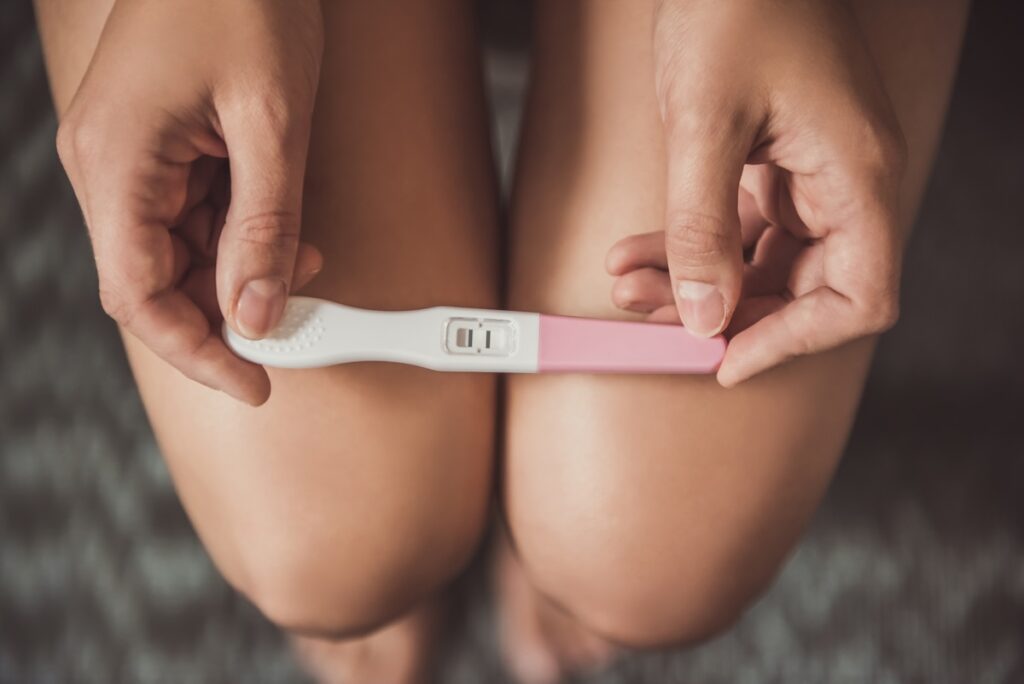Understanding the Role of Progesterone in Fertility and Menstruation
Posted By:
Dr. Michael Coyle, DO FACOOG, FPMRS

Progesterone is a hormone produced by the ovaries, placenta (during pregnancy) and adrenal glands. This natural steroid hormone affects and regulates many processes in the female body, including the menstrual cycle and pregnancy.
The hormone also plays a protective role, keeping the uterus safe from the effects of other hormones. “Progesterone helps to protect the inside lining of the uterus from too much estrogen,” says Dr. Michael Coyle, founder of the Coyle Institute for Female Pelvic Medicine & Reconstructive Surgery. High estrogen levels can cause many uterine issues, including thickening of the uterine lining and the development of uterine fibroids and polyps.
Progesterone and the Menstrual Cycle
Progesterone is released when the corpus luteum forms around the empty egg cycle in an ovary after ovulation occurs. This process supports the early stages of pregnancy if the egg becomes fertilized by thickening the uterine lining so that the egg can implant easily.
If the egg is not fertilized, progesterone decreases as the corpus luteum dissipates, allowing the uterine lining to thin and be released from the body.
Progesterone’s Role in Fertility
Healthy progesterone levels are a key component in a healthy pregnancy, especially in the early stages. When the egg is fertilized, the corpus luteum remains intact and continues to release progesterone, allowing the uterine lining to continue to grow. This provides essential nutrients for the embryo, helping to create an environment conducive to a successful pregnancy. Once the placenta develops, it takes on the role of producing progesterone.
Signs of Progesterone Imbalance
It can be confusing to figure out whether your hormones are balanced. Understanding the symptoms associated with imbalanced hormones can help.
Signs of a progesterone imbalance may include:
- Irregular menstrual cycles
- Hot flashes
- Mood changes
- Insomnia
- Fertility struggles
While menopause and hormonal imbalances can occur at the same time, one does not necessarily signal the other, according to Dr. Coyle.
“Unfortunately, what we’ve been taught about hormones and hormonal imbalances is that it has to be associated with menopause. That’s not true. Menopause is strictly to go 12 months without a period. That’s menopause. Hot flashes, night sweats, mood swings, irritability—it’s actually a hormonal imbalance,” says Dr. Coyle. “You can have a hormonal imbalance at any age.”
Talking with a doctor well-versed in women’s reproductive health is an important first step in learning more about your hormone health.
“The goal should be to try to figure out what’s going on with your hormones and then balance your hormones. If you’re currently taking one dose of a hormone that everyone’s taking, you’re most likely not balanced.”
Testing and Monitoring Progesterone Levels
Testing your progesterone levels can be a simple process and can provide you and your healthcare provider with the information that you need to balance your hormones so that you can feel your best.
“Here at Coyle Institute, if you’re having symptoms of hormonal imbalance, we’re going to offer a saliva kit. We give them away—we don’t charge anyone for them. Those results come back to us, and then we sit down with you and we talk about your specific test and getting you balanced.”
The Coyle Institute’s Approach Highlights
At The Coyle Institute, our team is here to help you with your hormone needs. We can help with diagnosing hormonal imbalances, developing personalized treatment plans designed for your unique needs, providing follow-up testing to see your progress over time and taking a proactive approach to ensure that your reproductive health is positively affecting your well-being. Reach out to the Coyle Institute today for a hormonal health evaluation. Our supportive team is here to provide you with the expert guidance you need to tackle menstrual cycle concerns, fertility issues and hormonal health matters.

